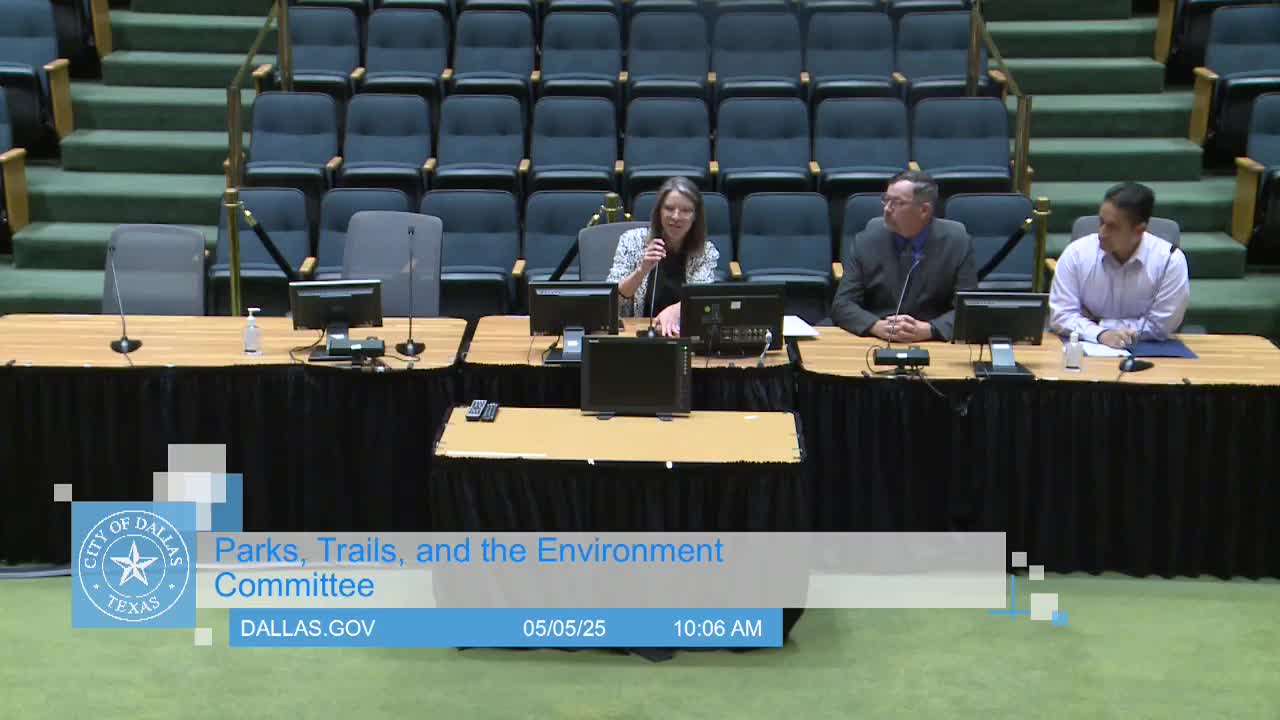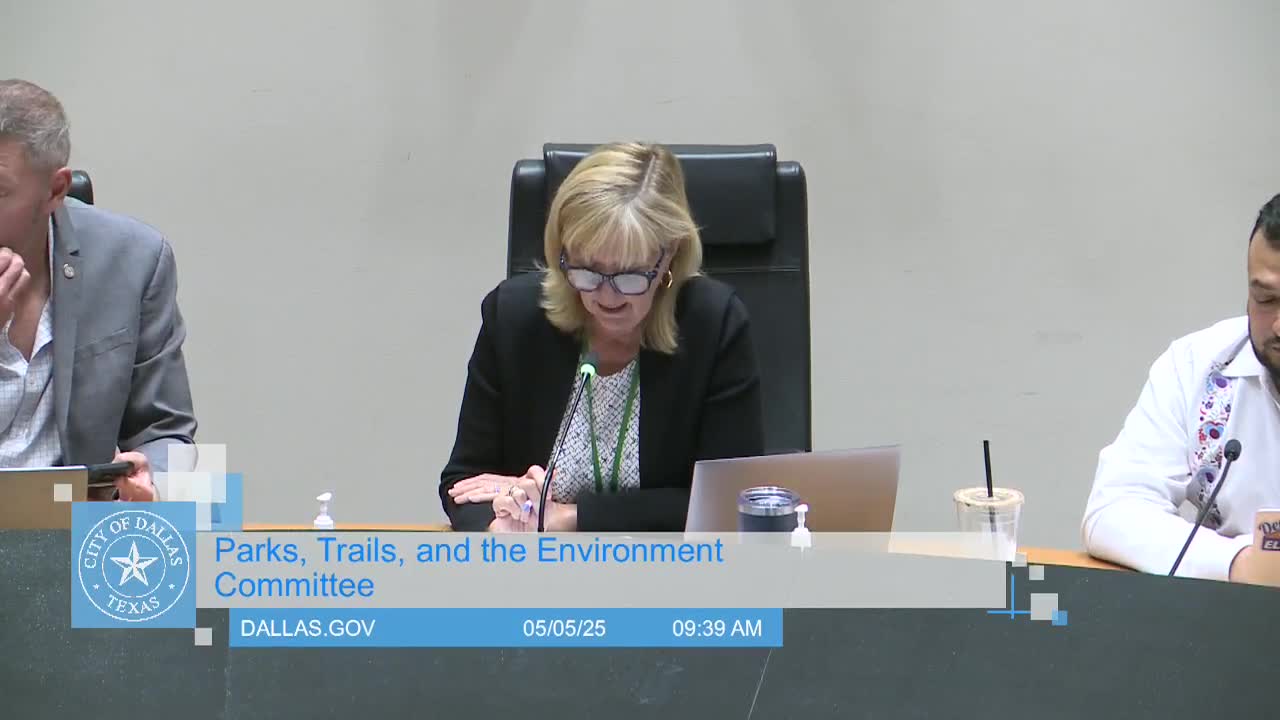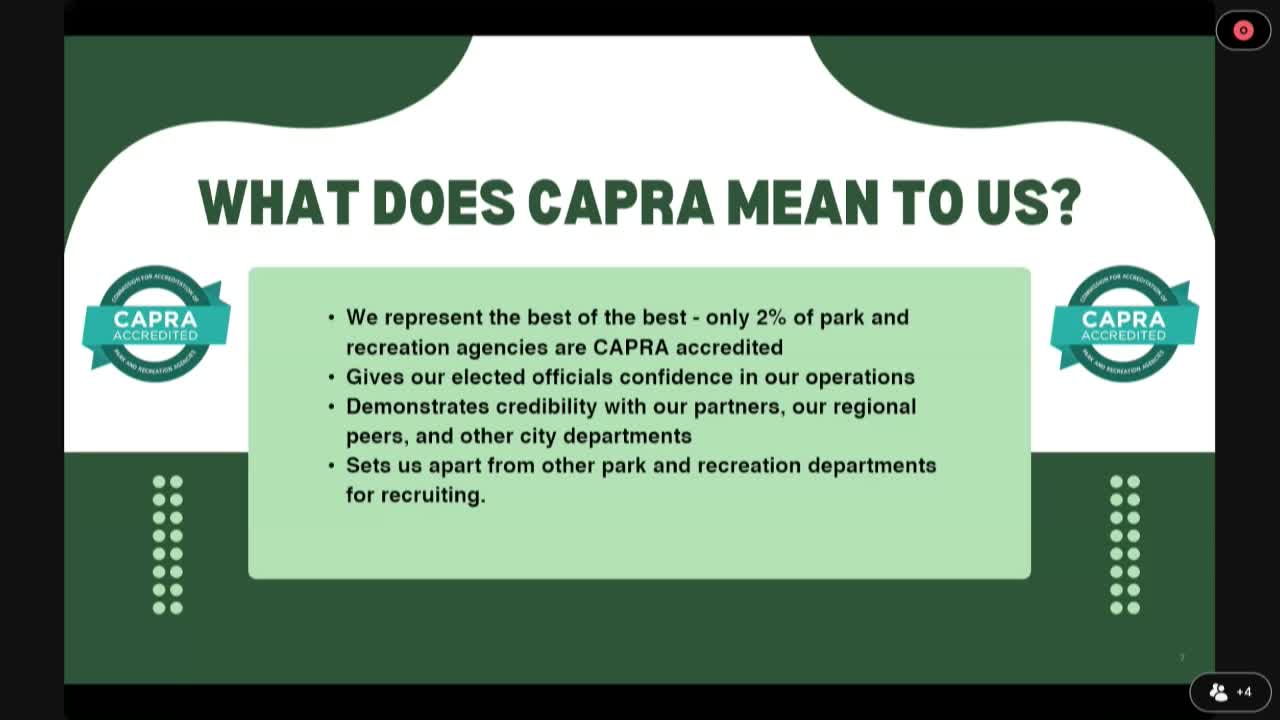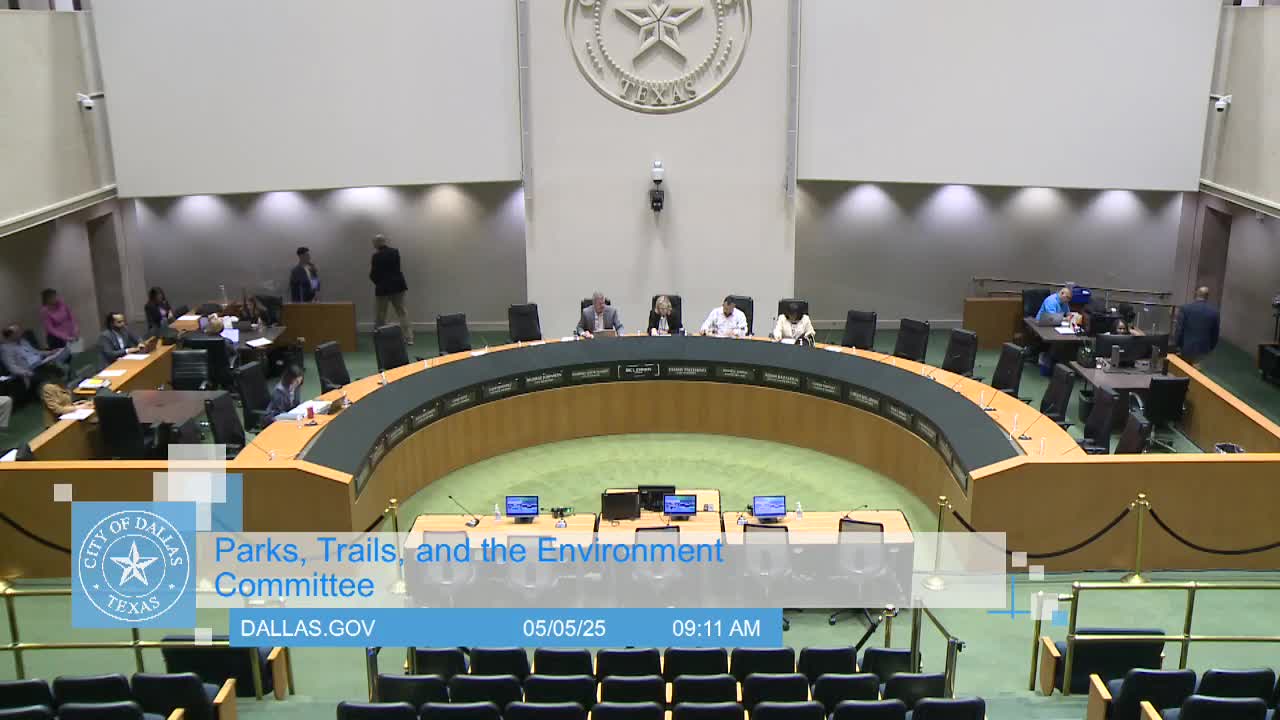Article not found
This article is no longer available. But don't worry—we've gathered other articles that discuss the same topic.

Dallas begins large urban tree inventory with USDA grant; contractors to map tens of thousands of trees

City staff weigh SolarAPP integration, propose 24-hour permit turnaround for simple rooftop solar

Dallas staff outline 2026 comprehensive parks plan, timeline and funding goals

